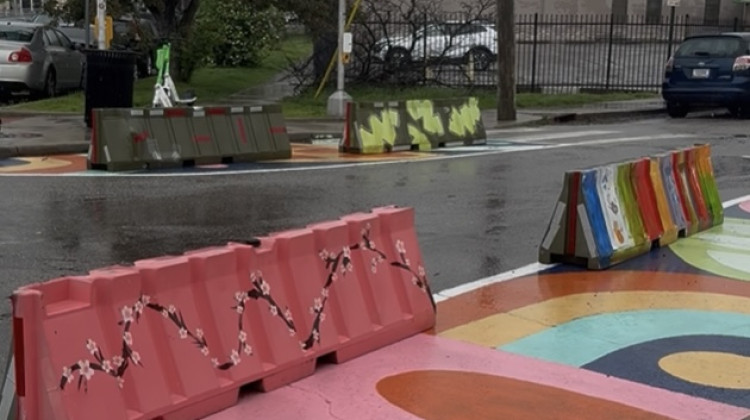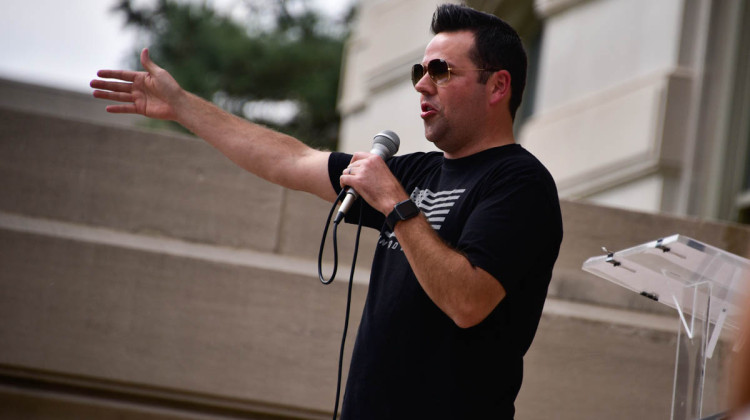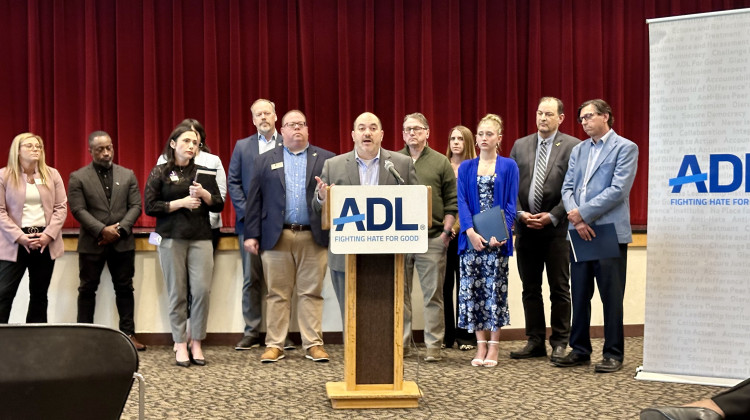With a sense of obligation to vote, and concerned about the economy, a trickle of Indiana residents cast ballots Tuesday in a primary election lacking a galvanizing issue or marquee statewide races.
For those drawn out by any specific issue, it was the economy, even though Indiana's unemployment rate was 5.9 percent in March, well below the national level and some of its neighboring Midwest states.
Chaka Coleman, 29, a homemaker who voted at Allisonville Elementary School in Indianapolis with her 3-month-old baby girl, said she believes politicians embellish the economic statistics.
"There's a lot of places that have very high unemployment and a lot of people that just simply quit trying to find work," she said.
The 2014 primary campaign has been far quieter than 2012, when tea-party-backed state Treasurer Richard Mourdock defeated longtime U.S. Sen. Richard Lugar in the GOP primary. Mourdock went on to lose in the November general election.
Turnout on Tuesday was light though workers in some precincts said that was typical for a midterm election. At one location at the Indiana State Fairgrounds, only 10 people had voted during the first three hours. By 3 p.m., only 53 people had voted at a precinct in the Indianapolis suburb of Westfield.
This year's election is largely focused on races for the state legislature — all 100 House seats are open, along with about half of the state Senate seats.
Many people said they voted in the primary simply out of habit.
"I always vote," said Angela Webb, 47, a registered nurse at St. Francis Hospital who described herself as "ultraconservative."
While the future of Indiana's ban on same-sex marriage got a lot of attention at the statehouse and the federal courthouse in recent months, it did not seem to resonate on primary election day. The legislature failed to get a constitutional amendment banning same sex marriage on the ballot this year, prompting some conservatives to blame members of the Republican-dominated legislature. A federal judge in Evansville recently blocked the state from enforcing the ban against a lesbian couple, one of whom has a terminal illness and wanted to be listed as married on her death certificate.
Tony Hahn, a Republican, said he would vote against the gay-marriage ban if it ever came to a ballot question.
"I would vote against a constitutional amendment that could infringe on anyone's right to marry," the 37-year-old attorney said after voting at a township office in Indianapolis.
The election process seemed to be running smoothly, with officials reporting a few problems with voting machines, none of which disturbed the small number of voters who turned out. Erin Kelley, spokeswoman for the Marion County Clerk's office in Indianapolis, said 295 of Indianapolis's 296 polling locations opened on time. One polling site opened late because an election worker had trouble finding transportation.
In the state Senate, John Waterman, R-Shelburn, was facing a well-organized and well-funded opponent in Washington City Councilman Eric Bassler. Indiana business interests and some of the political staffers associated with former Gov. Mitch Daniels were helping Bassler. Waterman, a financial adviser, considered a run against Daniels in the 2008 primary but ultimately stayed out of the race.
Two Republican state House members, Rick Niemeyer of Lowell and Mark Messmer of Jasper, were vying for Senate seats that became open due to retirements. Niemeyer was vying for the northwest Indiana seat being vacated by Sen. Sue Landske, R-Cedar Lake. Messmer was seeking the southwest Indiana seat held by Sen. Lindel Hume, D-Princeton.
Senate Republicans see Hume's seat as one of their best chances to improve their existing 24-seat edge over Democrats.
In the House, a handful of incumbents faced surprisingly tough challenges.
In northeast Indiana, tea party supporters have coordinated their opposition to Rep. Rebecca Kubacki, R-Syracuse. Kubacki, a two-term incumbent, who has been criticized for a vote that helped keep a proposed gay marriage ban off the November ballot. She has won the backing of the state's business groups and the House Republican Campaign Committee, which protects incumbents.
Republican Reps. Kathy Heuer of Columbia City and Casey Cox of Fort Wayne faced challenges from social conservatives angry about the same vote.
House Education Chairman Robert Behning, R-Indianapolis, picked up a surprisingly strong challenge from Michael Scott, a union electrician who has gained the backing of the state's unions. Conservative education overhaul supporters have flocked to Behning's defense; the Indianapolis Republican was instrumental in the passage of sweeping changes in 2011 and has continued pushing for expansions of the school voucher program.
The winners of Tuesday's contests will head to November showdowns. Next up for the Republican and Democratic parties are nominating conventions this summer, where party activists will decide who runs for auditor, secretary of state and treasurer.
 DONATE
DONATE










 Support WFYI. We can't do it without you.
Support WFYI. We can't do it without you.